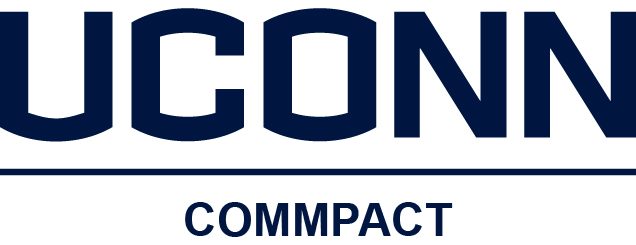A message from the director….
The CommPACT Community Schools Collaborative was founded nine years ago in partnership with the AFT-CT, CAPSS, CEA, CFSA, and UCONN. Designed as a model to engage community members, parents, administrators, students and teachers as key stakeholders in school decisions and improvement, our current work over the last four years has been dedicated to working together to increase community and parent involvement in schools.
During this time we have worked with schools to:
- Advise and assist with the application of CommPACT principles and practices and community school development strategies to schools interested in becoming community schools or building parent/family or community.
- Provide professional learning opportunities, research-based best practices and materials for teachers to assist their growth and development in the areas of family and community engagement.
- Support teacher training in the Parent Teacher Home Visit Project that allows teachers to build relationships of trust with parents based on visits to their homes.
- Design family resource centers as places and spaces for welcoming parents.
- Assess parents’ interests in an effort to offer programs based on their identified needs.
- Work with community agencies to connect their resources to the schools’ needs.
- Create local and statewide networks with other family and community organizations.
- Conduct research projects with findings and recommendations for educators in the field.
Parent and community engagement in schools remains critical to supporting students’ academic, social and emotional success in schools.
Michele Femc- Bagwell
About CommPACT
CommPACT is a part of Connecticut legislation (Public Act No. 13-64, also described in section 10-74g) and has been identified as a turnaround model. Our work is also aligned to the Connecticut State Board of Education’s Five-year Comprehensive Plan, Ensuring Equity and Excellence for All Connecticut Students (2016- 2021) that states, “Great schools build strong community partnerships and authentically engage parents” (p.5). CommPACT offers community, parents, administrators, students and teachers the support needed to accomplish this critical work.
Our work in CommPACT, particularly our work in community and parent engagement as well as our processes for building inclusive school-based plans for improvement, has demonstrated our capacity for providing specific and needed technical assistance and resources to schools seeking to engage parents, families, and community partners in more meaningful and purposeful ways in schools. While CommPACT was originally designed as a multi-faceted approach to school improvement, we have found that CommPACT’s most effective activities have been the establishment and coordination of parent involvement and community engagement programs and activities. These tasks are often outside the purview of the classroom teacher and many schools do not have resources or personnel designated to them.
The hallmarks of CommPACT – stakeholder empowerment, local level identification of challenges and needs, empowering teachers for change, parent and community engagement, cultivation of local resources, focus on data-driven problem framing, problem solving, and results analysis – neatly align with the hallmarks of a community school: community partners, faculty buy-in, parent involvement, school as community hub, extended learning time, and wraparound services. In addition, the merging of CommPACT and Community Schools builds on the strong collaboration and partnership of CommPACT and the teachers’ unions that is critical to effective and successful school change.
Mission and Goals
The redesigned CommPACT Model, the CommPACT Community Schools Collaborative, provides resources, materials, technical assistance, and evaluation frameworks to guide the establishment of community schools. It will strive:
- To advise and assist with application of CommPACT principles and practices and community school development strategies to schools interested in becoming community schools or building parent/family or community engagement.
- To recognize that all community schools are different.
- To promote the AFT resolution on community schools.pdf.pdf.
- To provide resources to community schools for parent and community engagement.
- To create/earmark budgets for CommPACT to schools in development; steward CommPACT funds, matching grants and/or focus on seed money.
- To advocate for legislation/funding for Community Schools.
Some content on this website may require the use of a plug-in, such as Adobe Acrobat Viewer.
History
Overview
This approach involves taking existing neighborhood schools and converting them to CommPACT Schools. Unlike some other alternative school models, CommPACT Schools are built on the collaborative efforts of those most directly involved with education:
- Community
- Parents
- Administrators
- Children
- Teachers
With access to the expertise of national school-improvement organizations, higher education leaders, and researchers, CommPACT Schools offer assistance in selecting and implementing evidence-based practices in governance, instruction, decision making, community involvement, and behavior management. Armed with the ability to effect positive change in these areas, CommPACT Schools will lead the future of school reform in Connecticut.
Overarching Goal
The goal of the CommPACT Schools is to provide all children with the high quality schools every parent wants for their own child. The CommPACT initiative strives toward equity of opportunity for learning and growth in order to increase each child’s odds of success, where education becomes a vehicle of opportunity. This is especially important for children in high poverty schools.
Autonomy
The idea behind CommPACT Schools is to develop a coalition of students, parents, teachers, teacher unions and associations, school administrators, school superintendents, and school boards. At the center of this initiative are students and teachers. It is paramount that they have a voice in decision making. Student ownership of learning is integral and founded in application-orientated opportunities. Teacher ownership of their evidence-based curriculum choices is equally fundamental to increasing collaboration. Teachers are empowered to choose the most appropriate strategies for their students. To assist in this, field-based practitioners will work with schools to facilitate links to resources and researchers as needed by the individual site. With the support of UConn’s Neag School of Education, CommPACT Schools have the resources to increase student learning in a collaborative environment.
Instructional Practice
The uniquely designed CommPACT initiative maintains that student ownership for learning is integral; learning needs to be personally meaningful. The aim of CommPACT Schools is for students to take ownership for acquiring meaningful and stimulating learning experiences that feature the development of thinking skills and problem solving abilities. Children in all schools should be developing multiple levels of understanding, not just basic knowledge, and learning should be linked to the context of the real world. The Institute for Urban School Improvement aims to support schools in building student learning opportunities that are conceptual, analytical, and application-oriented.
To realize these goals, CommPACT offers a process for inculcating new norms and reinforcing existing (compatible) norms to provide a cultural foundation for the work of the schools. This foundation fosters development of highly effective learning environments in classrooms and a professional learning community among faculty. Cultural transformation and/or affirmation are especially important for schools in which challenges and obstacles related to poverty abound. It is the commitment and will among adults in the school that form the foundation for a systematic data-driven decision-making process that begins with belief in equity and culminates in evidence-based solutions. Adults’ ownership, alignment, and building on strengths are crucial to realizing students’ ownership for learning. With cultural transformation, each person in the school becomes part of the solution. Everyone becomes resourceful and focused. The centrality of inquiry toward the aim of equal opportunity for learning and growth transforms the way of looking at problems. It develops both instructional support elements and technical improvements based on the needs and strengths of each school.
News & Events
CommPACT is a proud sponsor of the Friday CAFÉ, a morning discussion and networking series for people who work at the intersection of families and learning. Our monthly gatherings feature a short talk, fresh coffee and thought-provoking conversation.
Spring 2017 Schedule
February 3, 2017 - "Parent Voice" Roundtable, Engergize CT Center, North Haven, CT
March 10, 2017 - Garde Arts Center, New London, CT
April 7, 2017 - TBD
May 12, 2017 - TBD
Events Archive
The Parent Teacher Home Visit Project
A special by invitation only training was provided to our participating schools entitled Home "Visits Bridge, Bond and Build Connections between Families and Schools" presented by the Parent-Teacher Home Visit Project based in California. This in-depth training of the introductory presentation made at a Friday Café session last fall is being offered to our participating schools. The goal is to let participants see first-hand the possibilities of this program which is taking the nation by storm. It is a unique opportunity for capacity building and professional development for our CommPACT partners. This model is recognized by the US Department of Education as a high-impact strategy for family engagement. Our trainers are the originators of this project.
For more information please contact Jocelyn Ault.
Palmer House 17 E Monroe St, Chicago, Illinois
Friday CAFÉ Network
Friday CAFE is a morning discussion and networking series for people who work at the intersection of families and learning. Our monthly gatherings featuring a short talk, fresh coffee and thought-provoking conversation.Our network members go by many different names. Some work in schools, some in communities and are parent liaisons, partnership coordinators, home-school facilitators, family resource specialists and parent center directors. Previous presentations included:
UCONN Alumni Center - CommPACT hosted, in partnership with the Office of Public Engagement, where Michele Femc-Bagwell, CommPACT Community Schools Collaborative Director, facilitated the ASPIRE Survey with the group.
Discovery Museum - Our guest was Donna Thompson-Bennett, long-time parent educator, passionate community leader and inspirational champion for children and families.
Connecticut Science Center - A View from the Principal's Office: Creating the Open-Door School Where the Principal's Door is Always Open by Janet Brown-Clayton, Principal, Lincoln-Bassett School, New Haven, CT
Green Street Arts Center - The Forgotten Partner: Where are students in school-family-community partnerships? Do you work to engage families in their children's learning? Would you like to network and learn from others in the field?
Sponsored by CSDE, CREC, SERC/PIRC and Our Advisory Group
Engaging Families of English Learners Webinar
Experts in supporting English Learner and immigrant populations, Jhumpa Bhattacharya and Jimena Quiroga Hopkins, co-directors of Development Without Limits West, will discuss the needs of English Learners and offer concrete strategies to support English Learner families. We also heard real-life examples from practitioners and educators about how they are working with families.
• Learned about needs of English Learner students and families.
• Heard strategies to understand and engage EL families, and learn how that helps students success.
• Learned how an after school program engages families of English Learners.
This webinar was sponsored by the Family Engagement Resource Provider (FERP) project of Manhattan Strategy Group. http://www.manhattanstrategy.com/
The National Framework for Dual Capacity-Building: Webinar on New Guidance for Partnering with Diverse Families
A free webinar sponsored by the Region IX Equity Assistance Center at WestEd freaturing Dr. Karen Mapp, Senior Lecturer at the Harvard Graduate School of Education, who described what educators need to do to reach all families and embed family engagement in all school and district systems. Mapp is co-author of the new U.S. Department of Education’s framework, “Partners in Education: A Dual Capacity-Building Framework for Family-School Partnerships.” She will discuss the research background of the Framework and its key components.
Dr. Mapp was joined by an educator from Santa Clara County, CA, who will describe initiatives in this county that have resulted in more effective partnerships between families and teachers.
For more information and to register, see the event page.
Forum on Two Generation Strategies for Family Success
Legislative Office Building, Room 1D
Keynote Speaker Sarah Griffen, Annie E. Casey Foundation, will present the KIDS COUNT Policy Report: Creating Opportunity for Families: A Two-Generation Approach.Co-sponsored by CAHS and the Commission on Children
Click HERE for more information.
Community Schools Fundamentals
New York, NY
Connecting Faith, Families & Schools for Student Success
Weslyan University, Middletown CT
Parent Teacher Community Forum - Linking for Learning
Holiday Inn, East Hartford, CT
For More Information: Invitation Flyer
CommPACT Network Meeting - Parent-Family and Community Partnerships
Nathan Hale Inn and Conference Center, UConn Campus, Storrs
Some content on this website may require the use of a plug-in, such as Adobe Acrobat Viewer.


